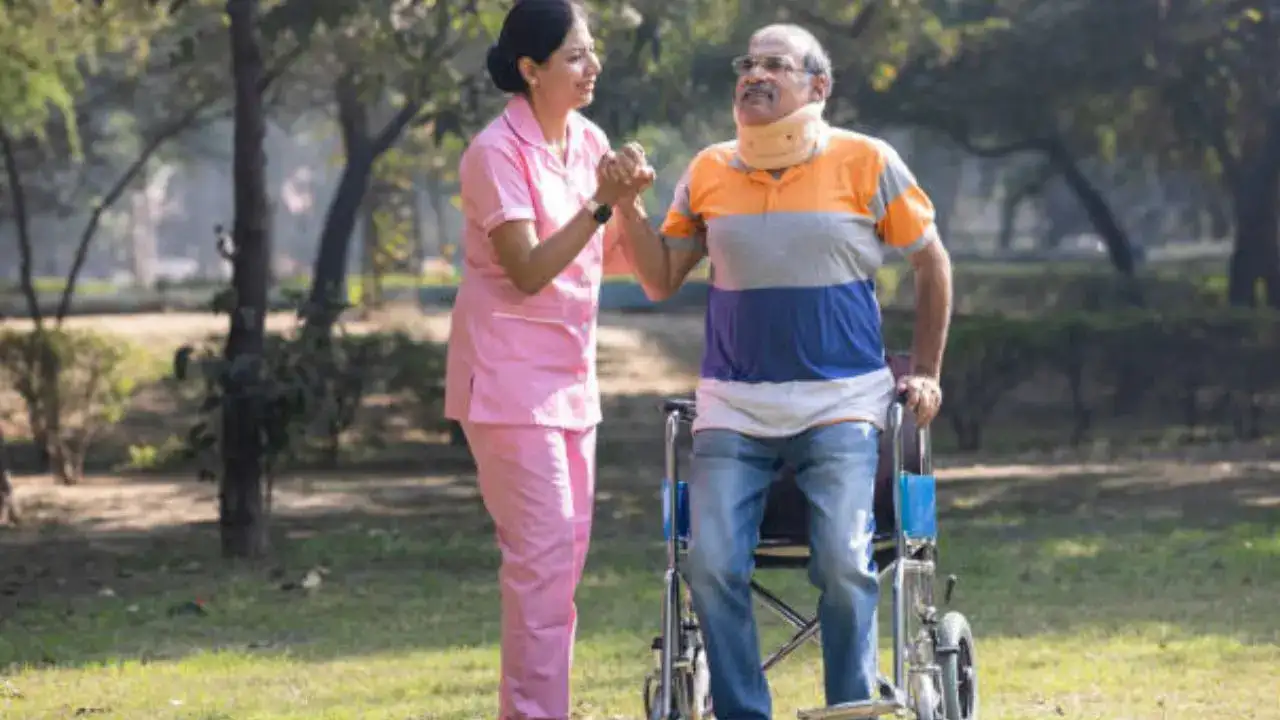By Camilla Foster
Copyright independent

Telling your family you’ve been diagnosed with breast cancer is one of the hardest conversations you may ever have.
The emotions are overwhelming and there is often a prevalent fear of how loved ones will react, which can make it difficult to know where to begin.
Ahead of Breast Cancer Awareness Month (October), we spoke with some experts to gather advice and tips on how to approach this deeply personal conversation. From preparing what to say to managing emotional responses, here are practical tips to help guide you through sharing your diagnosis with the people who matter most…
Take time to process the diagnosis
“Emotional readiness is really important. Take some time to go away and process the news first at home in your own space before discussing it with family,” recommends Kate Tomkinson, breast cancer nurse and spokesperson for Prevent Breast Cancer Charity UK. “Gather your thoughts and let everything sink in, and don’t worry as it may not do so for some time.”
Choose the right time and place
“There is no rule book for when you receive a cancer diagnosis, there’s no right or wrong way to do things,” emphasises Tomkinson. “It’s about just taking a day at a time and doing what feels right for you. When you feel you are able to discuss the devastating information that you’ve been given, that will be the right time to do it – and it’s important to not feel pressured about that.
“Many patients wait until after big celebrations like Christmas, or a graduation or a wedding to tell their family about their diagnosis. If you are planning to tell them in person consider finding a quiet, private setting where you won’t be interrupted.”
Speak to a health professional
Talking to a specialist nurse about sharing your diagnosis with your family can be helpful because they can offer support, provide information, help you understand your options, and offer strategies for communicating honestly and setting clear expectations
“When patients are diagnosed they will be given a specialist nurse that they can contact at any point,” says Tomkinson. “So, if you are really struggling with the enormity of the diagnosis, which many people do, then don’t be afraid to reach out.”Take advantage of the resources availableThere are many physical and online resources which provide advice on how to share the news with family members and friends.“There are books written on this subject and reusable booklets to support an honest and early discussion with small children, as the children will definitely ask very frank direct questions that a patient needs to be prepared for,” says Mrs Claudia Harding-Mackean, consultant breast surgeon at Nuffield Health Chester Hospital.Consider writing a letter
“You might prefer to tell someone on the phone or in a text message or a letter,” says Tomkinson. “I’ve known many patients to write letters because they found the thought of seeing the pain of their loved ones in person too distressing.”Acknowledge their feelings and concerns
Dealing with overprotective family members after sharing a diagnosis can be very difficult and exhausting, so try to express the impact it is having on you.“Acknowledge their level of concern, explain the impact it’s having on you and thank them for caring enough to be this concerned,” advises Harding-Mackean. “Gently remind them it’s important that they continue to support, but point out where the limits are between support and being overprotective.”
Set boundaries
“Be clear and direct that there will be limits to where you’re happy to take any discussion about your personal health whilst you’re undergoing treatment,” advises Harding-Mackean. “This can vary from simply saying ‘we’re not going to talk about that just now as I’m not comfortable’ to not responding to calls or emails if your boundaries aren’t respected.”
Avoid giving false reassurances
“Sometimes this can be very difficult with family members because patients don’t want to upset their loved ones,” says Tomkinson. “However, in my experience, not being honest can actually cause more harm.
“So, try to be strong and avoid false reassurances with family and friends. As hard as it is to give bad news, just try to be honest about it.”
Tailor language to the age of the child
“With children it is important to be open and honest with them, but try to tailor the language to the age of the child,” recommends Tomkinson. “Use age-appropriate language. For example, with young children maybe consider saying mummy is feeling poorly and is going to have some medicine rather than saying chemotherapy.”



